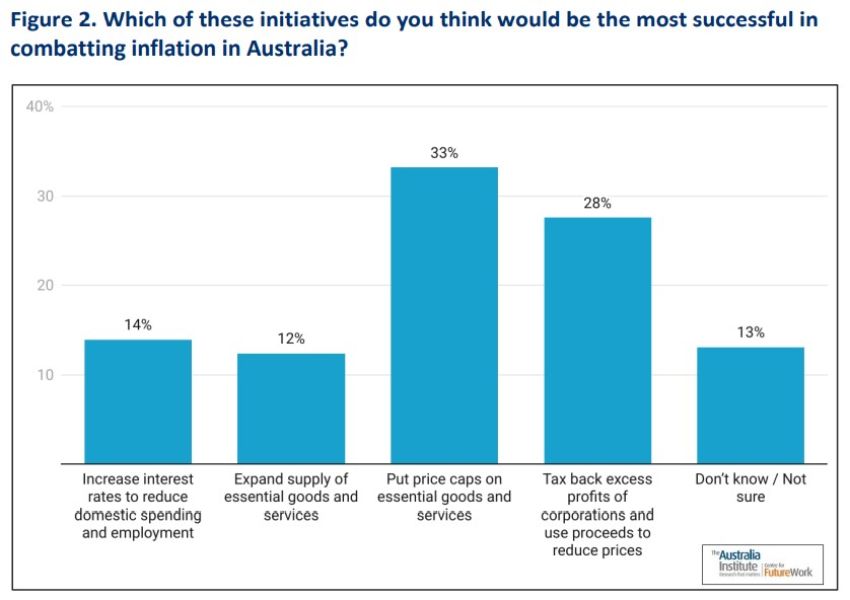
A new union initiative for a corporate super profits tax to fund social and affordable housing couldn’t have come at a better time — not only because of the dire housing crisis, but because of public anger at the Reserve Bank of Australia's (RBA) interest rate rise supposedly to curb inflation.
A new report by progressive think tank The Australia Institute’s (TAI) Centre for Future Work (CFW) found 66% of respondents believes inflation could be curbed by limiting companies’ ability to profit by raising prices.
Polling – Causes and cures of inflation also found that one in three think putting a price cap on essential goods or services would be the best way of combating inflation.
The survey was national and released in mid-July after the RBA’s fourth interest rate rises this year. Only 5% believe that inflation is being driven by higher wages.
Interestingly, out of four suggested initiatives, the TAI survey found that just under one third (28%) thought the most effective way to deal with inflation is to tax excess profits of corporations and use that to reduce prices.
Respondents were asked to rate four proposed measures to combat inflation: increase interest rates (14%); expand supply of goods and services (12%); put price caps on essential goods and services (33%); or tax excess corporate profits and use proceeds to reduce prices (28%).
Unsurprisingly, the first option — the RBA’s current strategy — was one of the two least supported. Capping prices on essential goods and services was the winner, with the tax on excess profits coming in second favourite. CFW chief economist Greg Jerico said most people “are far more aware than the Reserve Bank that inflation has been caused by companies increasing prices by more than their costs”.
People understand and support measures to control inflation, but not further interest rate hikes which “hurt households with little impact on inflation especially at a time when increases to rents and energy prices are set to continue”.
These results add weight to the Construction, Forestry, Mining and Energy Union’s (CFMEU) housing initiative, announced on July 25 at the National Press Club.
The union commissioned Oxford Economics Australia (OEA) to provide the research for a social case to invest in social and affordable housing. End the Housing Crisis, launched by CFMEU national secretary Zack Smith, is a political response to the deep and growing housing crisis in the country.
Figures provided by OEA estimate there is a shortfall of 750,700 affordable dwellings across the country. This shortfall is expected to rise to 1 million if no action is taken. It says it can be paid for with funds derived from a super-profits tax on corporations with turnovers greater than $100 million.
Such a tax on those that can afford it could raise the $28 billion a year required for affordable housing by 2041. Over 10 years, $290 billion could be raised from mining companies (excluding those already paying a resource rent tax) and $163 billion from non-mining companies.
These are significant figures, but to address the worsening housing problem requires a new approach, Smith argued at the National Press Club.
Smith wants the plan debated at Labor’s national conference in Brisbane next month. He’s already facing push-back, including from senior Labor figures such as government services minister Bill Shorten, who said Labor’s housing plan is good enough.
Labor’s housing plan, which relies on possible future earnings from a $10 billion “future fund” to build 30,000 social housing dwellings over the next five years, is being challenged by the Greens. They are convincingly arguing that the government needs to find, and commit to, significantly more funds now for public housing. They also want a national freeze on rents.
The CFMEU argues its plan will also provide much-needed construction jobs. It is preparing a national campaign, “End the housing crisis, tax super profits”. It is a welcome initiative from a union with a history of social unionism.
If you believe, like Green Left, that federal and state Labor governments must do better on affordable housing and rentals, please become a supporter.
